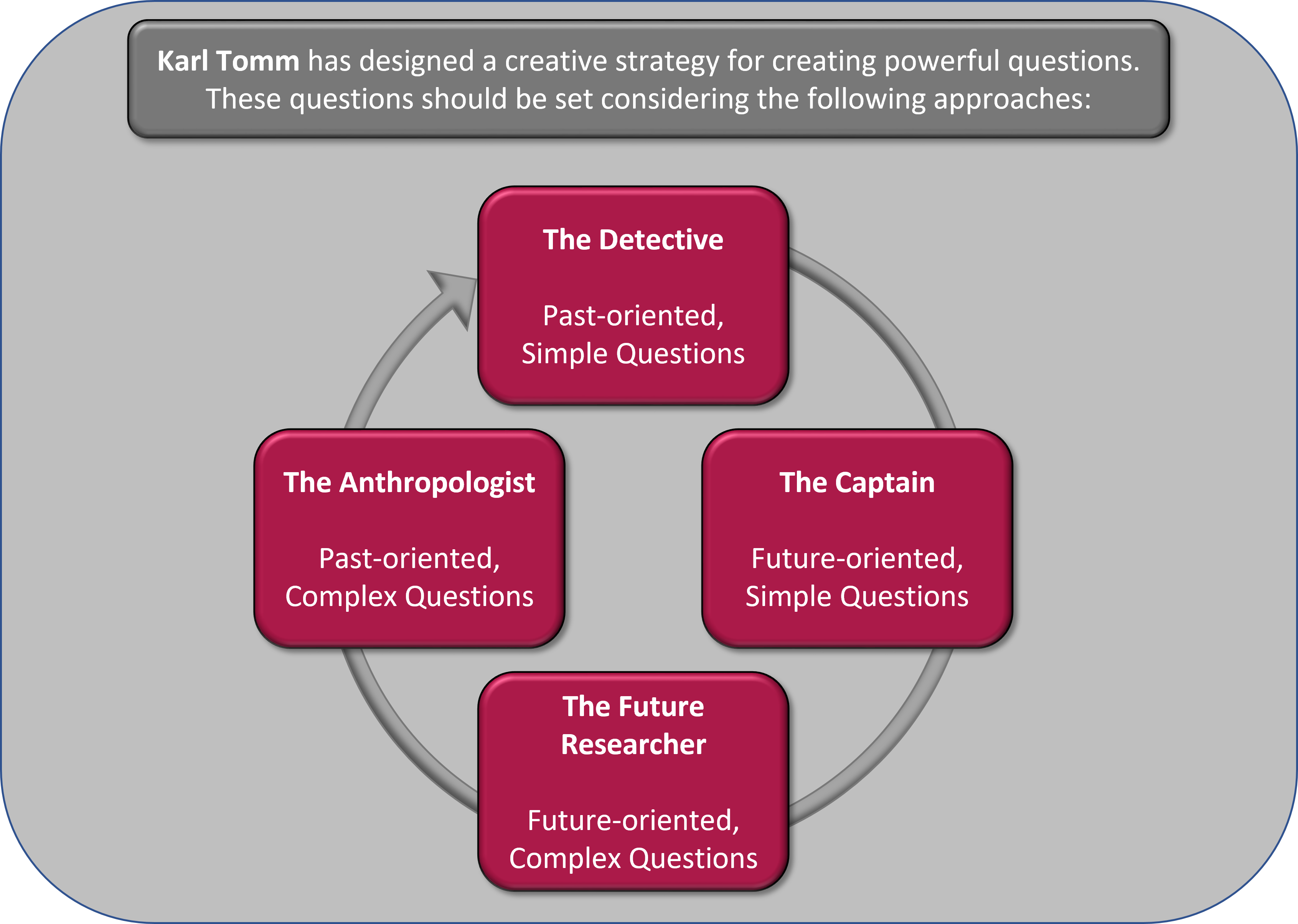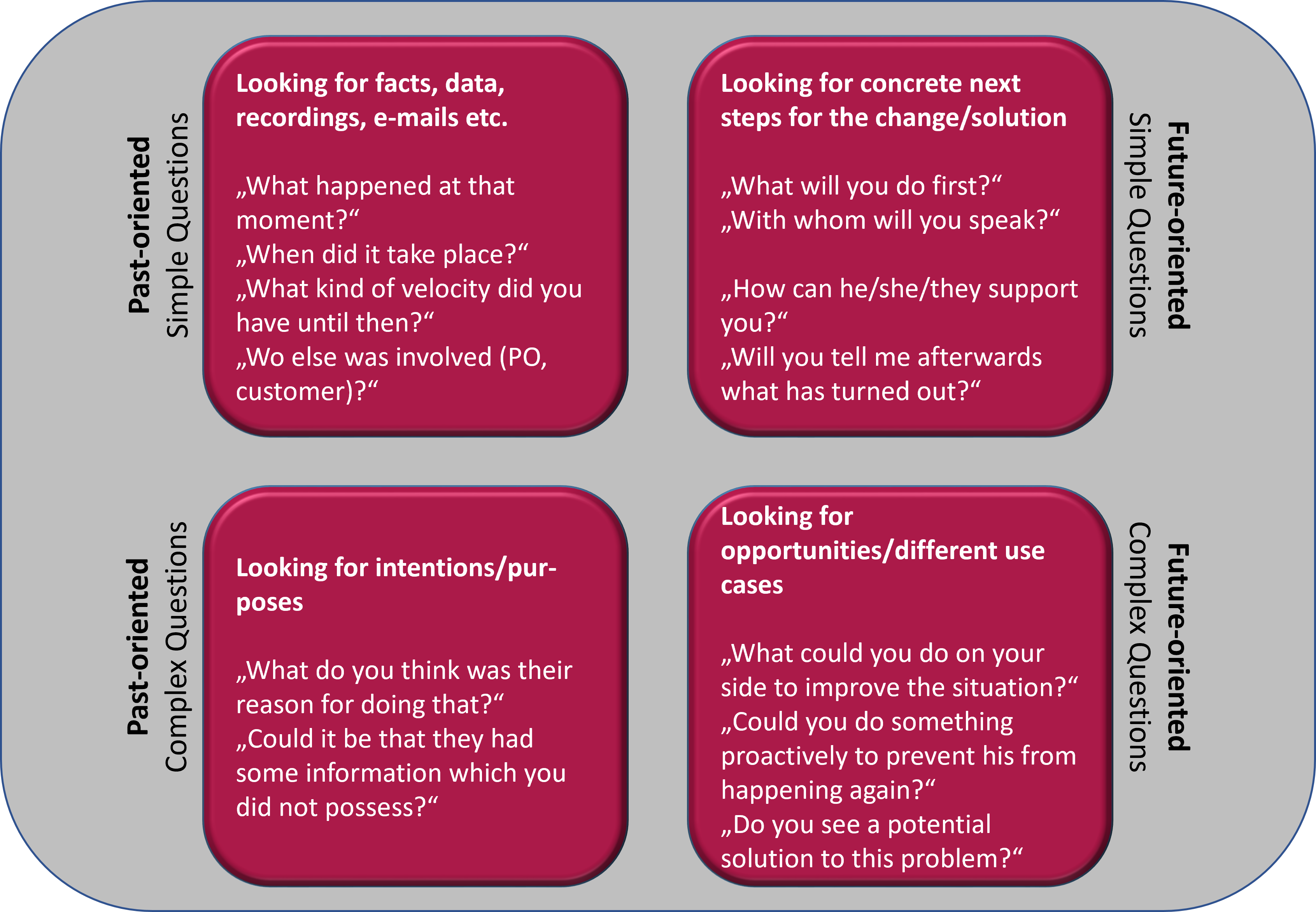Appearance
Coaching one-on-one/Powerful questions
- Subject
- Empower people
- Participants
- Agile Coach / Agile Master, stakeholders/managers, the entire agile team
- Facilitator
- Agile Coach / Agile master

Summary
A one-on-one is a conversation between the coach and the coachee. The participants agree on the purpose, rhythm, style - it's like a dance. Coaching sustains a positive mindset and is an approach to help people grow.
Definition
Agile coaching is a personal habit, a possible lifestyle. The agile coach is not really a professional coach, he/she just uses methods and tools from professional coaching and enriches them with agile expertise to reveal awesomeness from each individual through self-discovery.
Motivation
Make people awesome - according to one the principles of modernagile.
Results
You get highly commmited team member with a strong agile mindest
Benefit
Coaching on an organizational, leadership and team base is an invaluable tool for developing people across a wide range of needs, both on a professional and a private level. Most people who receive coaching report increased self-confidence and most of them benefit from improved work performance, human relationships and more effective communication skills. Coaching supports people's personal development, empowers and encourages them to take responsibility, improves individual performance, helps identify high potential employees, helps identify both organizational and individual strengths and development opportunities, proves organizational commitment to human-centered development.
Procedure
One can use Karl Tomm's model for asking powerful questions to the coachee. He has designed a creative strategy for creating powerful questions. These questions should be set considering the following approaches:
The coach navigates through four different roles, namely:
- the detective (asks past-oriented, simple questions)
- the anthropologist (asks past-oriented, complex questions)
- the captain (asks future-oriented, simple questions)
- the future researcher (asks future-oriented, complex questions)
"What happened at that moment?"
"When did it take place?"
"What kind of velocity did you have until then?"
"Who else is involved (PO, customer)?"
Past-oriented, complex questions are looking for intentions/purposes:
"What do you think was their reason for doing that?"
"Could it be that they had some information which you did not possess?"
Future-oriented, simple questions are looking for concrete next steps for the change/solution
"What will you do first?"
"With whom will you talk?"
"How can he/she/they support you?"
"Will you tell me afterwards what has turned out?"
Future-oriented, complex questions are looking for opportunities/different use cases, for example
"What could you do on your side to make the situation better?"
"Could you do something proactively to prevent this from happening again?"
"Do you see a potential solution to this problem?"


Source: 'The Hitch Hiker's Guide to Agile Coaching'42 Agile Coaching Company
Tools
Flipchart/whiteboard or as a free conversation
Hints
As one on one coaching is a very personal affaire, harmony between the coach and the coachee is key for success. If harmony is not given you may think about changing the coach.
See also
agile42 Coaching Company 'The Hitch Hiker's Guide to Agile Coaching'